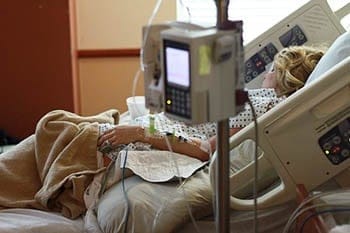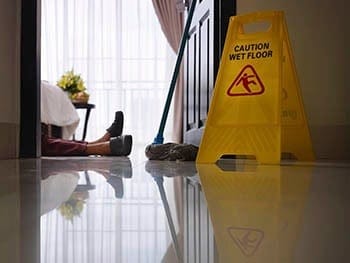April 19, 2016
Whether the dog in question is your own pet, belongs to a friend or family member, or is a stray or feral animal loose in public, aggressive dog bites can cause serious physical injury and risk infection, the need for hospitalization, or even death in the worst of cases. What should you do in case of a dog bite? We have some important steps to make sure you and your rights are covered.
April 13, 2016
Falling victim to medical malpractice is a tragedy piled upon a tragedy — we implicitly trust medical professionals to make the best decision and put the lives of ourselves and our loved ones in their hands. It’s hard to even think about anything going wrong in these situations, but we here at Bluestein Attorneys believe that the best time to learn the facts about medical malpractice isn’t after the tragedy has occurred, but before. If you or your loved one goes in for medical care aware of your rights, options, and needs in the event of serious medical misconduct resulting in injury or death, you’ll be better prepared to advocate for yourself, for family members, and to seek justice if anything should go wrong.
March 30, 2016
Ever experienced a situation where you or someone you know had to fight with your insurance company in order to receive the benefits owed after a car accident or medical claim? If so, you may have fallen prey to insurance bad faith. If you think your insurance company may be acting in bad faith, it’s important to really understand the scope of the issue. This will help you to understand what rights you have and what may be done to resolve it.
March 23, 2016
When we opened up this new blog, there were a few posts from our old blog that we made sure to hold onto — our series on PTSD and the VA and this post on the impact of the water contamination at Camp Lejeune. We hope you’ll take the time to read it again, in respect to the Marines and their families exposed to the sometimes fatal water contamination at Camp Lejeune.
March 16, 2016
Part I Part II Part III Part IV Part V Throughout our series on Workers’ Compensation, we’ve answered questions about the history of the WC program in South Carolina, the differences between total and partial disability, occupational diseases or health conditions not usually considered “injuries”, and how claims are filed and decisions may be made. In our final post in this series, we’re going to take a look at the one topic we haven’t yet touched — settlements. The two primary methods of settlement are a Form 16 or what is known as a “clincher agreement.”
March 9, 2016
Part I Part II Part III Part IV Part V In our series on Workers’ Compensation, we’ve answered many of the most common questions we hear. We’ve walked you through the basics of what WC is and when the program was created, the differences between partial and total disability, and even taken a look at occupational diseases and other health issues not normally thought of as “workplace-related injuries”. Today, we’ll be looking a little more in-depth into how a claim is filed, the 2007 changes to the Workers’ Compensation Act, and what it means to have a “change of condition.” First, though, let’s answer a quick question about the Second Injury Fund.
March 2, 2016
Part I Part II Part III Part IV Part V One of the most important protections that you have access to as an employee in South Carolina is Workers’ Compensation. In the event of an on-the-job injury or illness that is directly related to your work, it may enable you to mitigate the financial effects of being out of work by paying you a percentage of what you made while working during the time of your disability. In our first two blogs on the subject, we walked you through the definition and history of the program and who is covered by it, then answered some common questions about the difference between total and partial disability when it comes to Workers’ Compensation claims. Today, we’ll look at workplace illness, as well as those conditions that can be caused or exacerbated by workplace environment and other issues, such as strokes, heart attacks, and mental problems.
February 23, 2016
Part I Part II Part III Part IV Part V In our first post in our series on Workers’ Compensation, we answered three basic questions: What is Workers’ Compensation, why do we have it, and who does it apply to? In this follow-up post, we’ll take a closer look at what counts as partial or total disability and how that changes Workers’ Compensation claims and possible settlements.
February 17, 2016
Part I Part II Part III Part IV Part V When you’ve suffered an injury or illness as a result of your job, you have to make a lot of decisions in a very brief amount of time. “What sort of medical care do I need to pursue, if any? How long will I be out of work while I am recovering? Will my family still be able to pay our bills? Are there any long-term effects that may never go away as a result of this injury?” One of the most important questions you’ll need to answer is, Do I need to file for Worker’s Compensation?









